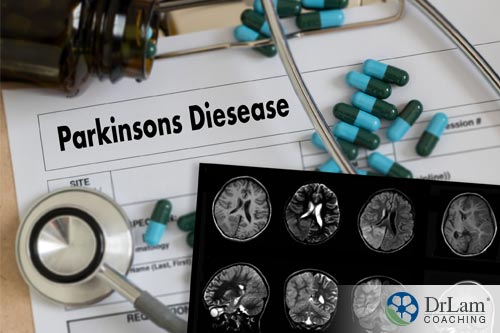 It is estimated that about 10 million people across the globe suffer from Parkinson’s disease. In the United States alone, approximately 60 000 are diagnosed with the disease each year and this accounts only for those in which the disease has been confirmed since Parkinson’s disease can often go undiagnosed. Although the condition is usually associated with the elderly, an estimated 4 percent of Parkinson’s disease sufferers are diagnosed under the age of 50—referred to as early-onset Parkinson’s. In general, men are one and a half times more likely to suffer from Parkinson’s disease than women. Interestingly, a study has suggested that a diet high in fish could help to prevent Parkinson’s disease.
It is estimated that about 10 million people across the globe suffer from Parkinson’s disease. In the United States alone, approximately 60 000 are diagnosed with the disease each year and this accounts only for those in which the disease has been confirmed since Parkinson’s disease can often go undiagnosed. Although the condition is usually associated with the elderly, an estimated 4 percent of Parkinson’s disease sufferers are diagnosed under the age of 50—referred to as early-onset Parkinson’s. In general, men are one and a half times more likely to suffer from Parkinson’s disease than women. Interestingly, a study has suggested that a diet high in fish could help to prevent Parkinson’s disease.
Although the exact cause of Parkinson’s disease is not fully understood, genetic and environmental factors are considered to be the main culprits. This neurodegenerative disorder results in the progressive deterioration of motor function, owing to the loss of a particular type of brain cell that produces dopamine and is an important chemical messenger.
The main symptoms associated with Parkinson’s disease are tremors, stiffness, issues with balance, and slowness. Additional symptoms can include anxiety, depression, and dementia.
Typically, the clinical presentation of Parkinson’s disease occurs in five stages:
Symptoms are mild and do not affect your quality of life.
As symptoms worsen, you’ll find going about daily life more difficult and simple tasks will take longer to complete.
Your balance will be impaired, your movements slow down, and falls are common. Simple daily activities, such as brushing your teeth or getting dressed, become increasingly more difficult.
Symptoms become severe and help is required to walk and perform simple activities.
This is regarded as the advanced stage of the disease. You will be unable to walk or look after yourself. At this stage, full-time care is required.
 Parkinson’s disease is a condition that occurs when certain neurons in the brain break down and die. Many of the symptoms associated with the disease are the result of neuron loss and the related shortage of dopamine in your brain. When released into the brain, dopamine acts as a natural reward for pleasurable experiences or as a response to certain stimuli. When excess dopamine is released, adverse effects include anxiety, hyperactivity, or paranoia, whereas low dopamine levels can result in addiction, cravings, compulsive behavior, depression, and difficulty concentrating or focusing. The latter can lead to abnormal brain activity which, in turn, results in the symptoms commonly associated with Parkinson’s disease. However, this type of chemical imbalance in the brain is not limited to those suffering from Parkinson’s. Up to 80% of the global population suffer from some form of chemical brain imbalance but the condition is only clinically symptomatic and debilitating in a small percentage of people.
Parkinson’s disease is a condition that occurs when certain neurons in the brain break down and die. Many of the symptoms associated with the disease are the result of neuron loss and the related shortage of dopamine in your brain. When released into the brain, dopamine acts as a natural reward for pleasurable experiences or as a response to certain stimuli. When excess dopamine is released, adverse effects include anxiety, hyperactivity, or paranoia, whereas low dopamine levels can result in addiction, cravings, compulsive behavior, depression, and difficulty concentrating or focusing. The latter can lead to abnormal brain activity which, in turn, results in the symptoms commonly associated with Parkinson’s disease. However, this type of chemical imbalance in the brain is not limited to those suffering from Parkinson’s. Up to 80% of the global population suffer from some form of chemical brain imbalance but the condition is only clinically symptomatic and debilitating in a small percentage of people.
Research on Parkinson’s disease has identified genetic mutations that may increase your chances of developing the condition. Even so, your chances of developing the disease are extremely rare. Certain environmental triggers are also purported to increase your risk of developing Parkinson’s later in life, but again, the risk is relatively small.
Scientists have also found a number of typical changes that occur in the brain of someone suffering from Parkinson’s disease. One of these changes is associated with Lewy bodies, which are microscopic markers of Parkinson’s disease found in the brain. Lewy bodies form when alpha-synuclein clumps together into what are known as amyloids and cannot be broken down. Alpha-synuclein is a protein mainly found in your brain although smaller quantities can be found in other places throughout your body.
It’s interesting to note that Lewy bodies are found in the majority of Parkinson’s patients regardless of what the initial cause of the condition may have been.
Neurotransmitters are chemicals found in the brain that act as chemical messengers and are responsible for transmitting signals between neurons, thereby enabling communication between your brain and other systems of your body. These chemicals regulate just about every function including sleep patterns, perception of and response to pain, physical and cognitive performance, and emotion. Therefore, when neurotransmitter levels are unbalanced, the repercussions can be felt throughout your entire body.
Nerve cells throughout your body communicate via neuronal pathways. The gaps between nerve cells are called synaptic clefts. Communication between nerve cells is via the neuronal pathways that bridge these synaptic clefts. The direction of communication is determined by your neurotransmitters. So, when your brain sends a signal, a particular neuronal pathway is followed and at the end, a neurotransmitter corresponding to that message is released and fills the synaptic cleft. The neurotransmitter is then combined with an appropriate receptor, thereby eliciting a particular action. The neurotransmitter-receptor action is performed until the intended target is reached and the task, as directed by the brain, is carried out. Once the required action is complete, the nerve signal is turned off and your communication system is ready to receive another signal.
Dopamine is one of the most vital neurotransmitters and also the precursor to norepinephrine, another neurotransmitter that helps control your blood sugar levels, heart rate, and your heart’s ability to contract. Norepinephrine plays an important role in the fight or flight response, which is triggered every time your body is exposed to stress, and puts your body into a state of alert. Outside the brain, it functions as a hormone and plays a role in heart rate, blood pressure, and narrowing of blood vessels in response to your body’s automatic NeuroEndoMetabilic (NEM) stress response.
Continuous and prolonged stress may lead to long-term excessive production of norepinephrine in the brain. This also occurs with adrenal fatigue. In the long run, excess norepinephrine could damage cells and tissue and lead to high blood pressure, inflammation, and even panic attacks.
A norepinephrine deficiency, on the other hand, may result in impaired cognitive function, immunological chemical imbalances, and behavioral issues. A dopamine imbalance can result in impaired short-term memory, fatigue, difficulty with numbers, and a lower libido.
There are a number of reasons why you may encounter a neurotransmitter imbalance, such as the following:
 The food you eat provides your body with the amino acids used to make neurotransmitters. When your body encounters a deficiency in any of the amino acids needed to make these chemicals, you may end up with a neurotransmitter imbalance. Certain foods, such as sugar and caffeine, may also have a negative effect on your neurotransmitters and junk food could even damage them.
The food you eat provides your body with the amino acids used to make neurotransmitters. When your body encounters a deficiency in any of the amino acids needed to make these chemicals, you may end up with a neurotransmitter imbalance. Certain foods, such as sugar and caffeine, may also have a negative effect on your neurotransmitters and junk food could even damage them.
Toxins found in certain medications, nicotine, alcohol, and other sources may influence the way in which neurotransmitters function. We’re all constantly being exposed to toxins at home, e.g., household cleaning products, herbicides, and cosmetics, and these toxins can inhibit or affect your body’s natural neurotransmitter production or function.
Constant bombardment with noise, radio waves, and constant, rapid visual stimulation, as a result of television, fluorescent lighting, and computers, can overload your senses. The constant flickering light forces your brain to work harder while trying to stay focused. Your brain then needs to produce more neurotransmitters in order to cope which could lead to fatigue and ultimately neurotransmitter depletion and imbalances.
If you don’t have the enzymes required for producing neurotransmitters, you may have a natural chemical deficiency.
Most of your neurotransmitters are in the gastrointestinal (GI) tract. Dysfunction of the GI tract can therefore result in neurotransmitter deficiencies. The most common causes of gastrointestinal issues are candida, inflammatory bowel syndrome (IBS), congestive bowel toxicity, and leaky gut syndrome.
Internal and external factors can influence your neurotransmitter balance. Internal factors include, among many others, the common cold, food allergies, and even changes in blood sugar levels. External factors could be altitude changes or a rapid change in barometric pressure.
Stress impacts your body on many levels and can affect your blood sugar levels, insulin levels, and how your body responds to free radicals, all of which have an influence on your neurons. Constant stress also affects your body’s neurotransmitter production and their actions. When your body experiences stress, the production of certain neurotransmitters may increase while others are reduced. In the case of chronic stress, this state of affairs continues, resulting in a chemical imbalance. As your body goes through the different stages of adrenal fatigue, the latter stages may see your body becoming desensitized, resulting in a total depletion of neurotransmitters.
Studies indicate that many patients with Parkinson’s disease have a dopamine deficiency. Dopamine helps transmit the signals that control muscle movement. It may be that the Lewy bodies associated with Parkinson’s block both the production and transmission of dopamine, thereby lowering norepinephrine production. Ultimately, the end result of these chemical imbalances experienced by the brain are the various symptoms commonly associated with Parkinson’s disease.
Research conducted in Sweden strongly suggests that a diet high in fish could help prevent the onset of Parkinson’s due to the presence of parvalbumin. The protein is found in large quantities in certain fish species. Although fish is high in omega-3 and omega-6 fatty acids—both lauded for their positive cognitive effects—it may actually be the parvalbumin that helps prevent Parkinson’s owing to its effect on amyloid formation in the brain.
As mentioned earlier, amyloid formation of alpha-synuclein in Lewy bodies is a definite marker of Parkinson’s disease. However, according to the study, parvalbumin forms its own amyloid structures that combine with alpha-synuclein proteins. The latter are then used for their own specific purposes. In this way, the formation of Lewy bodies is prevented.
Increasing your intake of parvalbumin, which is abundant in fish—especially herring, carp, redfish, red snapper, sockeye salmon, and cod—may help to stave off the onset of Parkinson’s disease due to its positive alpha-synuclein-forming action and influence on amyloids forming into Lewy bodies.
Interestingly, studies indicate that fish harvested towards the end of summer tend to have greater nutritional value as a result of the lengthened exposure to sun.
Parkinson’s disease has been associated with low levels of dopamine, inflammation, toxic exposure, and certain genes. The general method of dealing with the condition is management. The natural route would be as follows:

But while these lifestyle changes may help to slow down the progress or reduce the symptoms of Parkinson’s disease, they cannot cure the disease or stop its steady progression. However, the research does strongly suggest that parvalbumin—found in fish—may be able to halt alpha-synuclein, and subsequent amyloid formation, and may even be able to break it down. This could potentially prevent, or even stop, the onslaught of Parkinson’s disease.
While Lewy bodies are found in the brain of most sufferers of Parkinson’s disease, they are, in fact, a byproduct of the chemical imbalance caused by amyloid structures that hinder dopamine production and action. No definite cause has been found for Parkinson’s disease, although certain factors are known to play a role.
